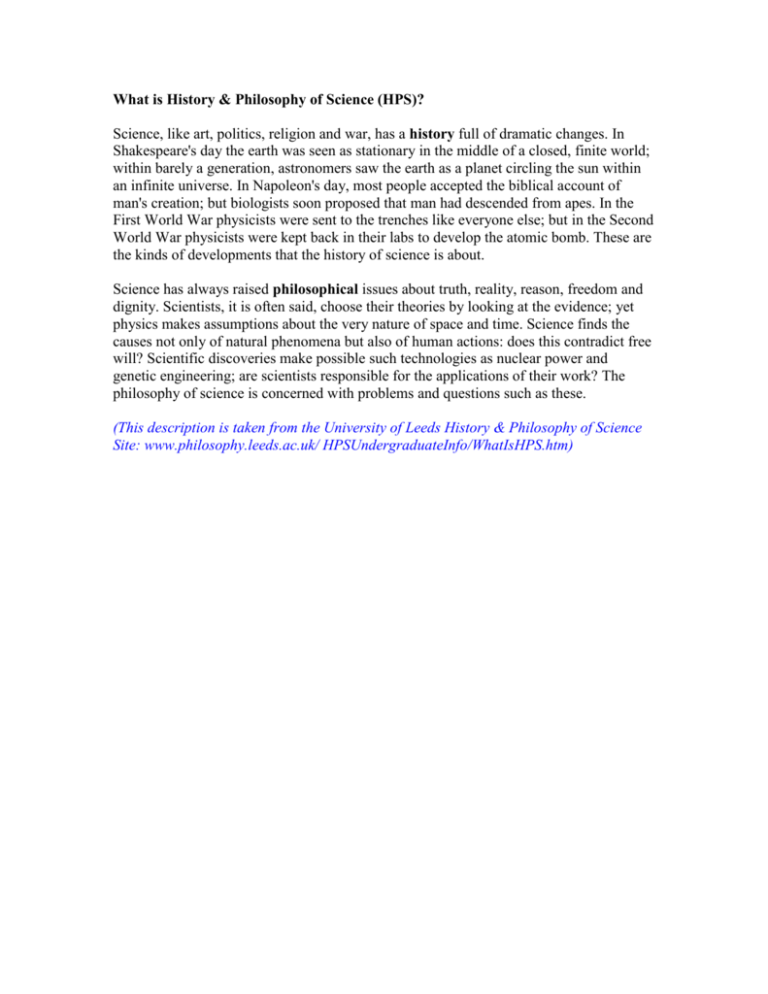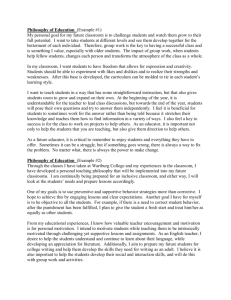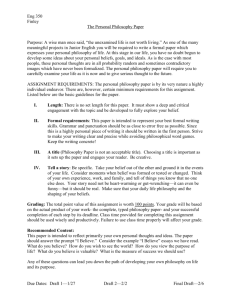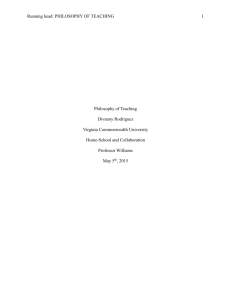What is History & Philosophy of Science (HPS)
advertisement

What is History & Philosophy of Science (HPS)? Science, like art, politics, religion and war, has a history full of dramatic changes. In Shakespeare's day the earth was seen as stationary in the middle of a closed, finite world; within barely a generation, astronomers saw the earth as a planet circling the sun within an infinite universe. In Napoleon's day, most people accepted the biblical account of man's creation; but biologists soon proposed that man had descended from apes. In the First World War physicists were sent to the trenches like everyone else; but in the Second World War physicists were kept back in their labs to develop the atomic bomb. These are the kinds of developments that the history of science is about. Science has always raised philosophical issues about truth, reality, reason, freedom and dignity. Scientists, it is often said, choose their theories by looking at the evidence; yet physics makes assumptions about the very nature of space and time. Science finds the causes not only of natural phenomena but also of human actions: does this contradict free will? Scientific discoveries make possible such technologies as nuclear power and genetic engineering; are scientists responsible for the applications of their work? The philosophy of science is concerned with problems and questions such as these. (This description is taken from the University of Leeds History & Philosophy of Science Site: www.philosophy.leeds.ac.uk/ HPSUndergraduateInfo/WhatIsHPS.htm)





















